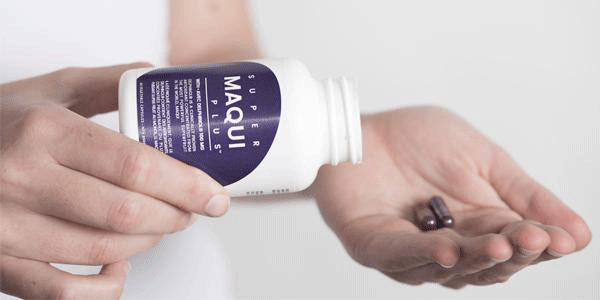Spring is here, and before you know it, it’ll be summer. And, if you’re in sunny LA, like me, it’s basically summer already. So, now is the best time to take care of your skin and take steps to prevent sun damage, dryness, and sunburns from the outside-in and the inside-out. Here are my skincare must-haves for spring/summer ‘18:
Top 3 Non-Toxic Topicals To Heal the Skin From the Outside-In
Mineral Sunscreen
Whatever you put on your skin, some of it will become absorbed – plain and simple. So, be aware of the ingredients that are in your skin care products. The most important thing to have in your daily skin care ritual to prevent sun damage and skin cancer is going to be sunscreen. And, mineral sunscreen is going to the best form to have.
Non-mineral ones will have benzones in them, such as oxybenzone or avobenzone. Why care about benzones? Well, studies show that they have estrogenic activities in animal models since they are easily absorbed through the skin and because of their chemical structures. These estrogenic activities could have implications on fertility and estrogen-related cancers. Now, let’s go back to mineral sunscreens. The minerals found in them are usually zinc and titanium. These minerals are not super well absorbed because of their chemical structures and can help block off UV rays from penetrating deep into the skin. So, that’s why mineral sunscreen a win for me!

Right now I’m really loving thinksport™ and for all you parents out there, they also have a kids line!
Topical Vitamins
Vitamin C and Vitamin E are the main vitamins I’m talking about. These two vitamins work together to help reduce free-radical damage to your skin due to ultraviolet exposure. Why care about free-radical damage? Well, it can lead to fine lines, wrinkles, and cancerous changes. Free radicals wreak havoc on the skin by changing the chemical structure of proteins, collagen, and DNA. You can easily find non-toxic options for these – look for great-quality Vitamin C serums and Vitamin E oils!
Antioxidants
I love using plant-sourced antioxidants on my skin in conjunction with topical vitamins to help reduce free-radical damage. I’m all for a great skincare routine, and me my favorite at the moment is Blue Tansy since it’s high in chamazulene, (a potent plant-sourced antioxidant).
Top 3 Supplement To Health the Skin From the Inside-Out
Food-based antioxidants
So, this is the third time I’ll talk about free radicals, but this time it’s associated with your diet. Dietary antioxidants allow deeper layers of your skin to get protection from any UV rays if they happen to pass through the topicals you put on. Remember, we’re in the business of prevention and protection!
I really like astaxanthin since studies show that it can inhibit UV-caused cellular damage. However, it is an extract from shellfish. So, if you’re allergic, pass on it.
A great plant-based way to get in antioxidants is through a high-quality greens powder or just having a plant-based diet and pairing it with anthocyanins, specifically, Maqui Berries.
Anthocyanins are the health-bearing molecules found in maqui berries that give them their deep purple color. In their most bioavailable form, they have shown to have numerous health benefits. Keep reading to learn about a few!
Maqui Berries have shown to have one of the highest antioxidant capacities (ORAC value) compared to other fruits berries (Maqui Berries yield 7x more anthocyanins than acai berries). Research also shows that high intake of fruits and vegetables are associated with better skin health due to their antioxidant and nutritional qualities.

If you follow me on Instagram, you already know how much I love putting Super Maqui Plus™ in my morning matcha or in my water to give my body an easy boost. Make sure you get high-quality anthocyanins though.
What differentiates Super Maqui Plus™ from other freeze-dried powders or from the berry itself is that it’s made only with Delphinol®, a super bioavailable concentration of only the anthocyanins extracted from Maqui Berries to ensure our bodies absorb the antioxidants properly to reap as many benefits possible. It’s also 16 times more potent than regular Maqui Berry itself so, now you really know why Super Maqui™ is my go-to.

But how does Super Maqui Plus™ help with skin issues?
As much as we can try to avoid free radicals, we are often exposed to them when we have no clue, which can cause oxidative stress and inflammation in the body. Lucky for us there is a way to stop free radicals in their tracks and prevent those issues from happening altogether!
Super Maqui Plus™ is not only shown to neutralize free radicals, but is also shown to decrease the effects of oxidative stress and inflammation associated with skin flare-ups as well (i.e. psoriasis, hormonal acne, eczema). Super Maqui Plus™ has also shown to protect the fibroblasts, the tissue in our skin that creates collagen, from UVA/UVB sun damage, which in turn also helps protect the skin from UVA/UVB sun damage, which can lead to wrinkles, sunspots, discoloration, and melasma.
Milk thistle seed
When your skin comes in contact with UV radiation, you know that you get tan. Why does this happen? Your skin natural produces melanin (a brown pigment) to help reduce the possibility of UV damage to your DNA. So, your body is basically trying to protect itself. However, some people get uneven skin tone from sun exposure and can get dark spots. Milk thistle seed is a great natural method to help reduce the appearance of uneven skin tone since it modulates melanin production. Another bonus to milk thistle seed is that it can help your body produce glutathione, which is an important antioxidant and also helps with detoxification.
Collagen

Collagen is also a great way to help boost skin hydration. Studies show that when hydrolyzed Type I collagen was taken daily for 12 weeks, skin hydration improved in subjects and it also helped reduce the appearance of fine lines and wrinkles! Studies also show that vitamin C helps with collagen production, which will help with skin hydration. So, get on that Vitamin C too!
Takeaways
- Protect your skin from the outside-in by first blocking skin-damaging UV rays with mineral sunscreen and then use vitamins and plant-based topical antioxidants to help protect the upper layers of your skin that didn’t get sunscreen coverage.
- Heal from the inside-out with herbal and food-sourced antioxidants and anti-inflammatories to protect and nourish the deeper layers of your skin.

References:
Sun lotion chemicals as endocrine disruptors
Asserin, Jérome, et al. “The Effect of Oral Collagen Peptide Supplementation on Skin Moisture and the Dermal Collagen Network: Evidence from Anex Vivomodel and Randomized, Placebo-Controlled Clinical Trials.” Journal of Cosmetic Dermatology, vol. 14, no. 4, Dec. 2015, pp. 291–301., doi:10.1111/jocd.12174.
Baldwin, Bruce W., and Thomas S. Kuntzleman. “Liquid CO2 in Centrifuge Tubes: Separation of Chamazulene from Blue Tansy (Tanacetum Annuum) Oil via Extraction and Thin-Layer Chromatography.” Journal of Chemical Education, 2018, doi:10.1021/acs.jchemed.7b00610.
Choo, Soo-Jin, et al. “Silymarin Inhibits Melanin Synthesis in Melanocyte Cells.” Journal of Pharmacy and Pharmacology, vol. 61, no. 5, 2009, pp. 663–667., doi:10.1211/jpp.61.05.0016.
Fernandez-Garcia, Elisabet. “Skin Protection against UV Light by Dietary Antioxidants.” Food & Function, vol. 5, no. 9, 2014, p. 1994., doi:10.1039/c4fo00280f.
M, Divya Sa Sriharsha, and Narotham Rk Krupa Sn. “Role of Diet in Dermatological Conditions.” Journal of Nutrition & Food Sciences, vol. 05, no. 05, 2015, doi:10.4172/2155-9600.1000400.
Maipas, Sotirios, and Polyxeni Nicolopoulou-Stamati. “Sun Lotion Chemicals as Endocrine Disruptors.” HORMONES, vol. 14, no. 1, 2015, pp. 32–46.
Matsuda, Naoya, et al. “Effects of Ingestion of Collagen Peptide on Collagen Fibrils and Glycosaminoglycans in the Dermis.” Journal of Nutritional Science and Vitaminology, vol. 52, no. 3, 2006, pp. 211–215., doi:10.3177/jnsv.52.211.
Park, Kyungho. “Role of Micronutrients in Skin Health and Function.” Biomolecules & Therapeutics, vol. 23, no. 3, 2015, pp. 207–217., doi:10.4062/biomolther.2015.003.
Talhouk, R.s., et al. “Anti-Inflammatory Bioactivities in Plant Extracts.” Journal of Medicinal Food, vol. 10, no. 1, 2007, pp. 1–10., doi:10.1089/jmf.2005.055.
R Watson, R & Schönlau, F. (2015). Nutraceutical and antioxidant effects of a delphinidin-rich maqui berry extract Delphinol®: a review. Minerva cardioangiologica. 63. 1-12.
Yoshihisa, Yoko, et al. “Astaxanthin, a Xanthophyll Carotenoid, Inhibits Ultraviolet-Induced Apoptosis in Keratinocytes.” Experimental Dermatology, vol. 23, no. 3, 2014, pp. 178–183., doi:10.1111/exd.12347.


